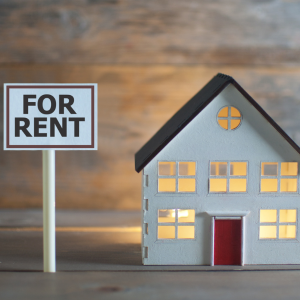Can I Rent Out My House During Divorce in Oahu, Hawaii? Divorce Property and The Rental in Hawaii
Navigating a divorce can be challenging, especially when shared assets like real estate are involved. If you’re considering renting out your property during a divorce in Oahu, Hawaii, it’s essential to understand the legal and financial implications that come with it. This guide explores the key aspects of managing marital property, local regulations, and the necessary steps for a successful rental process. Gaining clarity on your rights and obligations within Oahu’s real estate market helps ensure informed decisions and smoother transitions. For those exploring alternative options, working with cash home buyers in Oahu and surrounding Hawaii cities can also provide a faster, more flexible solution that supports financial stability during divorce proceedings.
Understanding Divorce Property Laws in Hawaii
Hawaii’s divorce property laws are unique in that they combine the complexities of equitable division and family law. Understanding Hawaii’s property laws is critical during a divorce. In Hawaii, marital property division follows specific statutes that govern equitable distribution during family disputes. Understanding the state’s approach to marital partnership and family law is critical for navigating the complexities of divorce. This includes real property considerations as well as family court protocols, all of which highlight the importance of clarity in property division and divorce law.
Key Elements of Property Division
In Hawaii, property division during divorce is based on distinguishing between marital and separate assets. Marital property encompasses everything acquired during the marriage and is subject to division, whereas separate property, or assets owned prior to the marriage, remains with the original owner. This distinction is important in the divorce process because Hawaii uses an “equitable division” approach, which means that property is divided fairly rather than equally. To determine what is fair, the court considers a variety of factors, including the length of the marriage, each spouse’s contributions, health, and financial circumstances. Aside from current possessions, property division includes future earnings, retirement accounts, and debts. Contributions such as paying the mortgage or maintaining the home are important considerations, reflecting Hawaii’s emphasis on balancing tangible and intangible efforts made during marriage.
Maintaining clear documentation of assets and their origins is critical for ensuring a fair distribution on Oahu and throughout Hawaii. This includes cataloging all marital assets, such as real estate, financial accounts, and personal property, as well as keeping ownership and acquisition records. Keeping thorough documentation simplifies complex disputes and promotes a transparent division process. Consulting a family law professional who is familiar with Hawaii’s property division statutes can help ensure that all assets are accurately represented and divided in accordance with state laws. Couples can better navigate the complexities of equitable distribution with proper preparation and expert guidance, reducing conflict and achieving a balanced resolution.
The Role of Equitable Division
In Hawaii, equitable division is important in divorce proceedings because it determines how assets and liabilities are fairly distributed between spouses. This approach focuses on fairness rather than equality, which means that property is not always divided equally but rather according to what the court considers just. Hawaii’s family courts take into account a variety of factors, including each spouse’s financial and non-financial contributions to the marriage, such as income generation, homemaking, and childrearing. They also assess earning capacity, future economic prospects, and marital sacrifices. For example, if one spouse gave up their career to support the family, the court may award them a larger share of the assets to reflect their contribution. Real estate, including the family home, is frequently subjected to a thorough economic analysis to determine its value and each spouse’s financial contribution to its purchase. This ensures that marital property laws are applied fairly and that the division is based on both practical and legal considerations.
Equitable division decisions in Hawaii’s family court frequently strike a balance between legal frameworks and real-world circumstances, such as living arrangements, child custody, and ongoing financial obligations. The distinction between marital and separate property helps the court decide which assets to divide. However, when property is co-mingled or jointly acquired, complexities arise that necessitate careful legal analysis to ensure a fair outcome. Consulting with experienced divorce attorneys in Hawaii can help protect individual property rights while ensuring compliance with state laws. Individuals can navigate the division process with greater confidence if they have professional guidance, ensuring that all assets are evaluated fairly and distributed in accordance with equitable standards. Finally, Hawaii’s equitable division system seeks to promote fairness and stability as both parties move from marriage to financial independence.
Can You Rent Out Your Property During a Divorce?
Renting out property during a divorce is a complex legal issue, especially in Oahu, Hawaii. This post investigates whether and how you can rent out your home during a divorce, focusing on important details such as legal implications and why consulting a lawyer is required. Understanding these aspects is critical for making informed decisions about your property, as they correspond to Hawaii’s unique divorce property laws. From potential income benefits to ensuring legal compliance, each step requires careful attention to avoid pitfalls. Learn how to effectively manage your rental property while adhering to family law requirements.
Legal Implications of Renting
Renting out a property during a divorce requires careful legal considerations, particularly under Hawaii’s family law. When deciding to rent, understanding the legal landscape is critical to avoiding potential problems. This includes understanding how rental income may influence asset division. In Hawaii, rental properties are frequently examined as real estate during divorce proceedings. The court considers whether the rental is marital or separate property, which has a significant impact on the division process. If the property was purchased during the marriage, it is usually considered marital property and therefore subject to division under Hawaii’s laws. However, if it was owned prior to marriage, it may be classified as separate property and thus exempt from division – though complications arise if marital funds were used to improve the property.
The legal implications of rental income add an additional layer of complexity, especially when Selling Rental Property at a Loss is being considered. Rental income is typically treated as marital income, which can affect alimony and child support calculations. Hawaii’s family courts may require rental agreements to be disclosed and possibly suspended during proceedings to ensure a fair evaluation of income. This highlights the critical importance of legal compliance—not only in property division, but also in maintaining transparency about all income sources during the divorce process. Mistakes in this area can lead to legal challenges and jeopardize the fairness of the property division.
Renting out a property during a divorce involves both family law and property law considerations. It’s essential to comply with local rental regulations and ensure that any leasing activity aligns with existing divorce agreements or court orders. Maintaining this balance helps prevent legal conflicts that could prolong the divorce process. Understanding the broader implications of renting, such as tax responsibilities, tenant rights, and ownership issues, enables you to make well-informed decisions. Attempting to manage these complexities without legal guidance can lead to costly setbacks. If renting becomes too complicated, explore alternatives. Here’s how Oahu Home Buyers can help you navigate property decisions smoothly and avoid unnecessary legal challenges.
Consulting a Lawyer for Guidance
Consult a lawyer during divorce proceedings for clarity and protection when renting out your property. Lawyers and attorneys who specialize in family and property law are invaluable in navigating Hawaii’s legal system. A lawyer’s advice ensures that your actions follow both state and federal laws, while also protecting your rights during asset division. This consultation is especially important in determining whether your property is classified as separate or marital property, which has a direct impact on rental capabilities and income distribution.
An attorney who specializes in both real estate and divorce law can provide strategic advice on managing rental income in accordance with family law requirements. They specify how such income should be documented and reported to ensure compliance with court procedures. This is especially important in cases where rental income may influence alimony or child support calculations, as proper representation ensures that all financial considerations are presented fairly in court. Lawyers draft rental agreements to protect your interests, even if the lessee is aware of ongoing divorce proceedings, avoiding legal misunderstandings or disputes.
Furthermore, consulting attorneys can help interpret Hawaii property laws in light of your specific circumstances, allowing you to make more informed decisions. They assess property investments, mortgage details, and their impact on equitable asset division, which adds to the legal complexities. An attorney prepares you for long-term settlement outcomes by providing insight into how your rental decision may affect the overall property distribution process.
In essence, having a knowledgeable lawyer by your side serves as a buffer and guide through the complexities of divorce and property law that are intertwined in Hawaii’s legal system. It provides you with the knowledge you need to manage your property wisely during a divorce while reducing the likelihood of future disputes. With their help, you don’t just comply; you strategically manage your assets, making legal consultation an essential step in this difficult journey.
Steps to Renting Out Your Home Legally
Navigating the complexities of renting out your home during a divorce in Oahu, Hawaii, necessitates strict adherence to legal requirements. Finding an appropriate attorney and obtaining the required legal documentation are critical steps. Using these processes ensures compliance with local property and family laws, which helps to avoid potential legal issues. This guide emphasizes the importance of following legal requirements, seeking professional legal advice, and understanding property law implications. By following these practices, you’ll be able to manage rental income while adhering to Hawaii’s unique divorce property rules.
Finding the Right Attorney
When considering renting out your property during a divorce in Hawaii, it is critical to consult with the right attorney first. Prioritize lawyers with experience in both family and property law because they understand the complexities of Hawaii’s legal system. A knowledgeable attorney can help you navigate potential challenges and ensure compliance with legal requirements that may impact your rental property and income distribution. Finding an appropriate attorney frequently entails searching online legal directories, reading peer and client reviews, and attending law firm consultations. In Oahu, where divorce proceedings are influenced by island-specific regulations, having a local expert is especially beneficial, as they provide insight into regional practices and expectations.
An attorney’s responsibilities go beyond just representing clients in court. They offer strategic advice on determining whether your property is marital or separate, which is critical for understanding your rights to rent during the divorce proceedings. This includes assessing prior investments, income contributions, and any improvements made with marital funds that could affect the property’s classification. A skilled attorney can help protect your interests while also ensuring that Hawaiian legal standards are followed. They also prepare you for the potential consequences of renting a contested property, such as how to report rental income and how it affects alimony or child support.
In addition, attorneys with experience in both property and family law can help draft lease agreements that take into account ongoing divorce proceedings. These agreements clearly define tenant expectations and acknowledge the property’s marital status, reducing the possibility of future disputes. In essence, hiring the right attorney is the foundation for successfully managing rental property during a divorce. Their expertise protects you from unexpected legal challenges, allowing the divorce process to run smoothly while protecting your financial and legal interests. With proper legal guidance, homeowners can confidently navigate this complex process, ultimately protecting their financial future and minimizing disruption.
Essential Legal Documentation
When renting out your Oahu property during divorce proceedings, it is critical to obtain all necessary legal documentation. Understanding the specific legal requirements protects your property rights as well as your rental income. Proper documentation is essential in distinguishing marital and separate property, allowing for a more seamless transition during this difficult time. Working with an attorney who is familiar with Hawaii’s property and family laws ensures that all documents are properly prepared and meet court requirements. Property titles and deeds are the first important documents because they clarify ownership and help prevent disputes, especially if the property was improved with marital funds. Accurate titles are consistent with Hawaiian court expectations and lay the groundwork for legal compliance in property division.
In addition to ownership documents, well-written rental agreements are essential. During a divorce, rental agreements must cover all potential contingencies and ensure compliance with ongoing court orders. An attorney who specializes in property law can create agreements that protect your interests while taking into account family law considerations, such as how rental income affects alimony or child support. Legally binding agreements provide clarity and reduce conflict, ensuring that tenants and the court understand the terms of occupancy and income distribution.
Financial documentation is also important, including profit and loss statements that track rental income. These records are required for open discussions about asset division and determining the effect of rental income on alimony or child support. Consulting a lawyer for assistance with tax forms and understanding the tax implications of rental income helps to ensure state and federal compliance. Homeowners on Oahu can confidently protect their rights, reduce risks, and navigate the complexities of renting property during a divorce by preparing and maintaining these documents with the assistance of an experienced attorney. Strategic preparation not only protects financial and legal interests, but it also makes the divorce process go more smoothly and legally.
Impact of Renting on Property Division
Renting out your home during a divorce can greatly influence property division, especially in Oahu, Hawaii. This process requires a clear understanding of how rental income and property use may affect divorce settlements. Family courts often evaluate how rental proceeds impact marital assets, making it essential to handle the situation carefully to avoid disputes. By recognizing these legal and financial implications, homeowners can better protect their interests while ensuring compliance with Hawaii’s family law requirements. For those navigating this transition, Oahu Home Buyers can help provide guidance and support to ensure a smooth and equitable resolution.
| Aspect | Impact on Division | Court Consideration | Recommended Actions |
|---|---|---|---|
| Property Valuation | Can influence equitable distribution of assets | Considers fair market value and rental income | Obtain a professional appraisal |
| Rental Income | May affect spousal support calculations | Evaluates income generation from property | Document all rental income and expenses |
| Ownership Distribution | Determines each party’s share in the property | Reviews prenuptial or postnuptial agreements | Negotiate a fair buyout or division agreement |
| Tenant Agreements | Impacts property management responsibilities | Considers existing lease agreements | Review and possibly renegotiate lease terms |
This table outlines the complexities involved in managing rental properties during divorce, emphasizing the need for legal guidance and strategic planning.
Navigating Division Disputes
In the context of divorce, navigating division disputes while renting out your property on Oahu, Hawaii, can be quite difficult. These disputes are frequently caused by misunderstandings about how rental income and property usage affect the overall property division. Because Hawaii is not a community property state and instead uses equitable division, property is divided fairly rather than 50/50. This means that rental income from the property during the divorce can be a significant factor in determining asset distribution in family division courts. The decision of whether or not to include this income as marital assets becomes a focal point. In cases where the property was purchased during the marriage, the earned rental income is typically considered marital, which influences the division process.
Navigating these waters necessitates a thorough understanding of family law, as family courts will determine the fairness of income distribution. Furthermore, rental properties may be subject to additional scrutiny, influencing how marital and separate properties are evaluated. If the income is relevant to alimony or child custody support, it must be properly documented and reported. This transparency helps to reveal each party’s full economic landscape, which ultimately influences the court’s decision. Hawaii’s family division courts also consider the potential impact of rental income on child custody arrangements to ensure that the child’s financial well-being is not jeopardized. Such considerations highlight the importance of keeping accurate financial records and adhering to legal requirements.
Working closely with legal professionals is essential when navigating the potential disputes that may arise from renting out a property during a divorce. Legal experts can help draft rental agreements that protect your interests while ensuring compliance with family law requirements. Keeping thorough documentation of property-related income and expenses allows for transparent court evaluations and fair outcomes. This proactive strategy minimizes costly errors that could lead to prolonged legal battles or unfavorable divisions. Partnering with experienced attorneys familiar with Oahu’s legal system is invaluable, as they can provide tailored guidance for managing property disputes. Additionally, exploring options with investor home buyers in Honolulu and other cities in Hawaii can offer an alternative path to streamline asset division and achieve financial stability during this challenging time.
Working with lawyers who specialize in family and property law can also help develop strategies to protect individual rights. They ensure that rental agreements comply with court orders and do not interfere with divorce proceedings. Making informed decisions with the help of legal experts reduces the likelihood of disputes, ensuring that renting out the property is an advantage rather than a complication. Understanding the implications for both property and the division process enables individuals to strategically manage their assets, ensuring long-term financial stability even during the turmoil of divorce.
FAQs:
What are the implications of renting out a house during a divorce in Oahu, Hawaii?
Renting out a house during a divorce can impact marital property division. Rental income is typically considered marital income and affects asset division, alimony, and child support calculations.
How does Hawaii’s equitable division law affect property division in a divorce?
Hawaii’s equitable division law ensures that property is divided fairly, not equally, based on factors like the duration of the marriage, contributions by each spouse, and economic circumstances.
What distinguishes marital property from separate property in Hawaii?
Marital property includes assets acquired during the marriage and is subject to division. Separate property consists of assets owned prior to marriage and typically remains with the original owner unless improved with marital funds.
Why is consulting an attorney crucial when renting out a property during a divorce?
Consulting an attorney ensures compliance with Hawaii’s property division laws and family court mandates. An attorney helps classify property correctly and navigate legal complexities around rental income.
What legal documents are necessary to rent out a property during a divorce in Oahu?
Essential legal documents include property titles, rental agreements, financial statements, and appropriate tax forms. These documents help differentiate between marital and separate property and ensure transparent financial reporting.
Helpful Oahu Blog Articles
- Fun Facts About Oahu, Hawaii
- Sell A Condemned House In Oahu, HI
- Sell Your House Fast Before Foreclosure in Oahu, HI
- Can I Rent My House During a Divorce in Oahu, HI
- Effective Ways to Attract Buyers for Distressed Properties in Oahu, HI
- Selling Your Old House in Oahu, HI
- How to Sell an Investment Property in Oahu, HI
- Is Oahu, Hawaii Safe?
- Oahu, Hawaii Property Managers
- Best Things to Do in Oahu, Hawaii with Kids

![Can I Put My House Up for Rent While Divorcing [market_city]](https://image-cdn.carrot.com/uploads/sites/1287/2025/10/Can-I-Put-My-House-Up-for-Rent-While-Divorcing.png)



